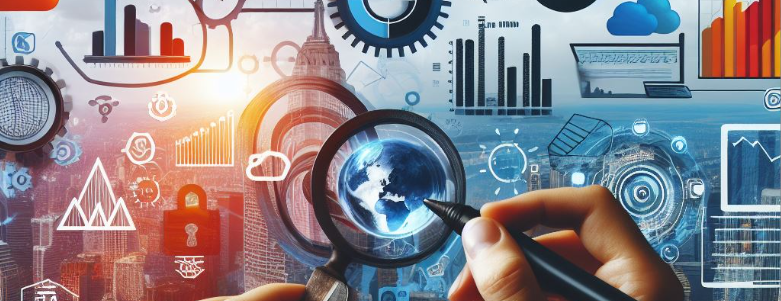
The digital marketing landscape is constantly evolving with innovative technologies, platforms, and strategies. As we enter 2024, I have taken the liberty to synthesize and simplify several key trends that will shape digital marketing over the next year and beyond. I do want to give credit to the esteemed marketing experts I had the honor of moderating at a recent SEMpdx future panel event for inspiration regarding a few of the trends. Here are eight notable digital marketing predictions and trends to help marketers prepare for the road ahead:
Thought Leadership Gains Traction with SEOs
With an increasing focus on optimizing for Google’s E-E-A-T, a component of Google’s Search Quality Evaluator Guidelines (SQEG) recently, 2024 will see an explosion of interest and focus in brands partnering with thought leadership to create high-ranking content. Google’s SQEG focus on Experience, Expertise, Authoritativeness, and Trustworthiness is best addressed by brands whom engage with subject matter experts that regularly speak, write and secure press mentions. This is particularly exciting for me, as a digital marketing thought leader for 28 years. For more information, check out the Moz SEO Content Predictions blog post for additional detail and validation.
Humans and Computers Swap Roles
Historically, humans have used MarTech to augment marketing content, search engine optimization and other disciplines. With AI evolving significantly in the past two years, the roles will reverse, where humans will increasingly augment marketing processes in 2024. AI will now take the lead on identifying topics, then creating and optimizing content while humans will play an essential role in providing uniquely human narrative that is also consistent with the brand message framework and ensuring both consistency with voice and integration with an overall omnichannel strategy. Additionally, humans will need to diligently verify and fact-check AI-generated content, to identify and eliminate any hallucinations that may create legal or ethical liability.
Artificial Intelligence Optimization (AIO) Will Gain Awareness and Credibility as a Marketing Discipline
Playing off the previous prediction of AI driving key marketing activities, humans will evolve into guides, editors, and advisors to AI. Enter AIO, a new and evolving discipline at the intersection of AI prompt engineering and marketing prowess, ranging from copywriting and search engine optimization (SEO) to email marketing, graphic design, advertising and landing page optimization. In a broad sense, successful copywriters, developers, and designers will evolve into AI-savvy editors who create something new, unique, and valuable upon a foundation created by machine learning tools. Marketers that embrace AIO in their digital strategy are blazing a trail in 2024, not just keeping up.
Marketers will Become Developers
With the increasing adoption of low-code platforms like Mendix, Appian, and Microsoft Power Apps, to rapidly develop applications, anyone can be a developer without knowing a line of code. Similarly, workflow automation platforms Zapier, Integrately, IFTTT and HubSpot Operations Hub make automating standardized, repetitive processes easier than ever. When it comes to AI, anyone can now create a custom chatbot using OpenAI’s GPT builder. Combining these robust platforms enables marketers to create a wide variety of tools to automate, streamline and improve marketing. With an ability to rapidly and affordably create tools that enhance the customer experience (CX), marketers will see improved conversion rates.
With Help from AI, Marketers Will Effectively Target User Intent to Increase ROI
While predictive analytics, personalization, localization, and semantic search focusing on user intent have been available to marketers for two decades, the rapid growth and evolution of AI created new opportunities by synthesizing these capabilities into affordable solutions. Since Google incorporated BERT (Bidirectional Encoder Representations from Transformers) in its search system in October 2019, marketers have seen the benefits of optimizing for context over keywords. AI takes that to a new level by analyzing mounds of data and provides the opportunity to recommend (if not display) personalized content to target audiences throughout the customer journey. AI will help copywriters, SEOs, advertisers, email marketers and web developers create highly curated user experiences based on intent, in real-time, dramatically impacting ROI.
Google Will Shift Focus to Ecommerce as SGE Evolves
As Google continues to roll out and refine its Search Generative Experience (SGE) to the public in 2024, there will be a natural reduction in traffic to high-ranking websites and ads currently displayed in search engine result pages (SERPs). To offset the projected revenue loss, Google will focus heavily on optimizing ecommerce functionality and further personalizing search results to better monetize the customer journey in search and better position against competitors like Amazon, which is the most popular starting point for product searches. Social platforms are also aiming to take away search market share and evolve their own ecommerce capabilities. Brands should look for new opportunities to target searchers with enriched product listings that streamline the shopping experience by integrating with shopping feeds, marketplaces and ecommerce websites.
Social Search Will Continue to Erode Google’s Search Market Share
Although Google will continue to hold a majority market share in terms of consumer search, alternate platforms will continue to erode market share. Amazon overtook Google as the most popular platform for product searches years ago, and the trend will continue. Increasingly, consumers have started informational searches on social media platforms including YouTube, TikTok, Pinterest and Reddit. This shift will force SEO professionals to look beyond Google to social media platforms and content optimization. Keep in mind social platform content optimization should include all form factors, from video (vertical and standard), images, audio and of course, text. A deep understanding of each platform’s algorithm will be required in 2024 and beyond.
Marketing Will Return to The Fundamentals
With AI proliferating all aspects of marketing, including lazy marketers’ focus on generating reams of low-quality content, consumers and search engines alike will become jaded and trust will be lost. To combat the deluge of unoriginal content, smart marketers will revisit the most effective (albeit old school) marketing techniques, leading with compelling storytelling via authentic voices. While ChatGPT can create logical stories on-the-fly, a competent marketer can craft a truly memorable and meaningful story that is unique, relevant, and actionable. Forward-thinking brands will focus on conversational content and marketing, leveraging not only remarkable stories but AI to help refine targeting and personalization (rather than the other way around).
Over the past two-plus decades, I have seen and experienced significant shifts in how humans seek information, communicate, and collaborate, thanks to the Internet. However, AI is a far more impactful evolution that will change human behavior in profound ways well beyond streamlining marketing. With tremendous power comes responsibility and I believe myself and my fellow marketers must be diligent in our monitoring and use of AI-generated content. Despite ethical, moral, and legal challenges we must navigate in the years to come, AI is by far the most exciting tool we have at our disposal, and it should be leveraged to create more effective marketing in 2024 and beyond.

Kent Lewis founder of pdxMindShare, an online career community and networking group mentioned on Seth Godin’s blog. Formerly a CMO and founder or co-founder of multiple agencies, he’s known as a thought leader in digital marketing. He’s been an adjunct professor for more than 20 years at Portland State University and a volunteer instructor for SCORE. Lewis co-founded SEMpdx in 2006, a trade organization for search engine marketing professionals. His recognition includes Marketer of the Year by the American Marketing Association and Top 100 Digital Marketing Influencers by BuzzSumo.
